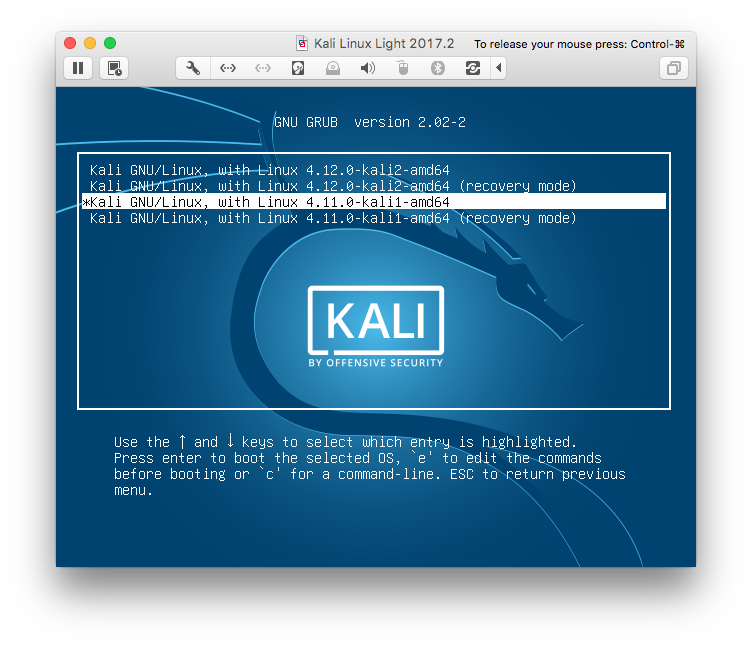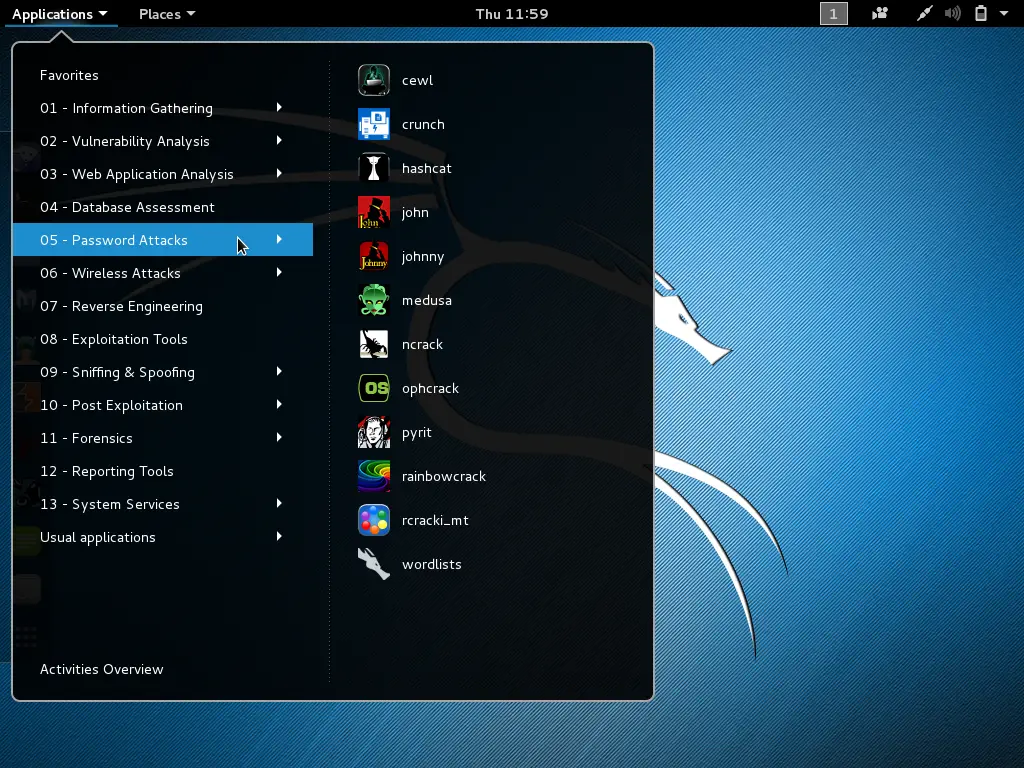
- KALI LINUX KERNEL ANDROID
- KALI LINUX KERNEL SOFTWARE
- KALI LINUX KERNEL BLUETOOTH
- KALI LINUX KERNEL SERIES
- KALI LINUX KERNEL WINDOWS
These tools can be used for a number of purposes, most of which involve exploiting a victim network or application, performing network discovery, or scanning a target IP address. Kali Linux includes security tools, such as: Kali Linux has stood out against these other distributions for cyber security and penetration testing, as well as having features such as the default user being the superuser in the Kali Live Environment.

There are a few other distributions dedicated to penetration testing, such as Parrot OS, BlackArch, and Wifislax. Kali Linux is developed with a focus towards cyber security experts, penetration testers, and white-hat hackers. Comparison with other Linux distributions However, the developers recommend that users test these features extensively before using Kali for real world forensics. When booted in forensic mode, the system doesn't touch the internal hard drive or swap space and auto mounting is disabled. This mode is very popular for many reasons, partly because many Kali users already have a bootable Kali USB drive or CD, and this option makes it easy to apply Kali to a forensic job. īackTrack (Kali's predecessor) contained a mode known as forensic mode, which was carried over to Kali via live boot. It supports Wireless 802.11 frame injection, one-click MANA Evil Access Point setups, HID keyboard (Teensy like attacks), as well as Bad USB MITM attacks.
KALI LINUX KERNEL ANDROID
It is the first open source Android penetration testing platform for Nexus devices, created as a joint effort between the Kali community member "BinkyBear" and Offensive Security. Kali Linux has a dedicated project set aside for compatibility and porting to specific Android devices, called Kali NetHunter.
KALI LINUX KERNEL WINDOWS
The official Kali distribution for Windows can be downloaded from the Microsoft Store. Kali Linux is available on Windows 10, on top of Windows Subsystem for Linux (WSL). It has also been made available for more Android devices through unofficial community builds. With the arrival of Kali NetHunter, Kali Linux is also officially available on Android devices such as the Nexus 5, Nexus 6, Nexus 7, Nexus 9, Nexus 10, OnePlus One, and some Samsung Galaxy models. Kali Linux is already available for Asus Chromebook Flip C100P, BeagleBone Black, HP Chromebook, CubieBoard 2, CuBox, CuBox-i, Raspberry Pi, EfikaMX, Odroid U2, Odroid XU, Odroid XU3, Samsung Chromebook, Utilite Pro, Galaxy Note 10.1, and SS808. The developers of Kali Linux aim to make Kali Linux available for even more ARM devices. Kali Linux is distributed in 32-bit and 64-bit images for use on hosts based on the x86 instruction set and as an image for the ARM architecture for use on the Beagle Board computer and Samsung's ARM Chromebook. 50 GB of hard disk space, SSD preferred.The recommended hardware specification for a smooth experience are:

KALI LINUX KERNEL BLUETOOTH
Tools highlighted in the show and provided by Kali Linux include Bluesniff, Bluetooth Scanner (btscanner), John the Ripper, Metasploit Framework, Nmap, Shellshock, and Wget.
KALI LINUX KERNEL SERIES
Kali Linux's popularity grew when it was featured in multiple episodes of the TV series Mr. Most packages Kali uses are imported from the Debian repositories. Kali Linux is based on the Debian Testing branch. It was developed by Mati Aharoni and Devon Kearns of Offensive Security through the rewrite of BackTrack, their previous information security testing Linux distribution based on Knoppix.
KALI LINUX KERNEL SOFTWARE
Kali Linux has approximately 600 penetration-testing programs (tools), including Armitage (a graphical cyber attack management tool), Nmap (a port scanner), Wireshark (a packet analyzer), metasploit (penetration testing framework), John the Ripper (a password cracker), sqlmap (automatic SQL injection and database takeover tool), Aircrack-ng (a software suite for penetration-testing wireless LANs), Burp suite and OWASP ZAP web application security scanners, etc.

It is maintained and funded by Offensive Security. Kali Linux is a Debian-derived Linux distribution designed for digital forensics and penetration testing.


 0 kommentar(er)
0 kommentar(er)
